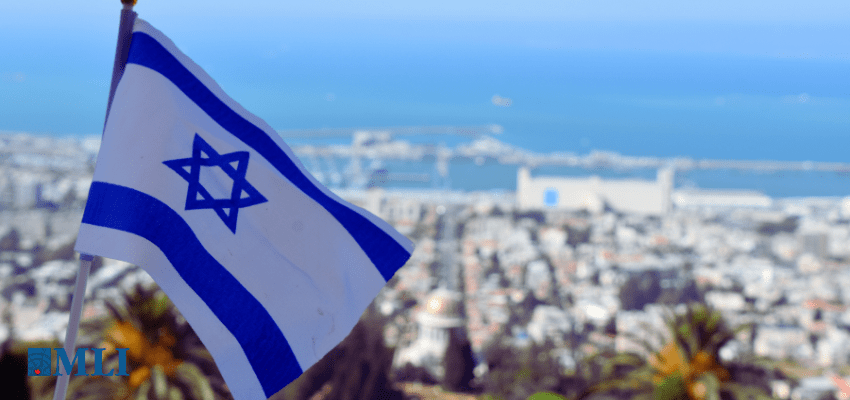This article originally appeared in the National Post.
By Casey Babb, June 13, 2024
On Saturday, the Israel Defence Forces, along with other branches of Israel’s security establishment, carried out Operation Arnon — a hostage rescue mission described by many as one of the most daring and complicated in military history. Disguised as displaced Palestinians, covert Israeli special forces made their way through dauntingly complex urban terrain controlled by Hamas and successfully rescued four Israeli hostages from two separate civilian homes.
For Israelis, the Jewish diaspora and their allies, this hostage rescue was not only a desperately needed morale boost, it was a powerful reminder of just how far Israel will go to protect and save its own. Others, including Canada’s special representative on combating Islamophobia, described the operation as a “massacre.” This desperate mischaracterization of a country saving its own people from a genocidal terrorist group is terribly misleading.
For starters, data on civilian casualties is being reported by the very group responsible for the kidnappings — Hamas. While civilians were certainly and unfortunately killed in the operation, it is impossible to say how many of the reported 274 Palestinian civilian casualties were in fact innocent bystanders.
Indeed, it is now known that a Palestinian journalist and his physician father were among two of the people holding the four Israelis hostage in their homes — a revelation indicative of the complexities the IDF has been facing since October 7. We also know — based on troves of intelligence, combat footage and hostage statements — that Hamas almost always operates in civilian clothing and in extremely densely populated civilian areas, further undermining the reliability of civilian death-toll figures.
Furthermore, suggesting that this operation was a “massacre” — or, as former Human Rights Watch executive director Ken Roth described it, a “war crime” — furthers a deceitful double standard that’s often applied to Israel, while downplaying the horrific complexities of warfare.
Sadly, hostage rescue operations lead to civilian casualties more often than not. In 2002, for instance, during the Moscow theatre hostage crisis, Russian security forces accidentally killed 132 hostages by using fentanyl-based sleeping gas in an attempt to subdue the Chechen terrorists behind the attack. In 2010, a U.S.-led operation to rescue Scottish aid worker Linda Norgrove ended up killing her.
In 2014, another U.S.-led operation in Yemen to save two U.S. hostages held by al-Qaida resulted in both hostages dying, along with numerous civilians. In 2015, the Obama administration admitted that a drone strike targeting an al-Qaida compound killed American hostage Warren Weinstein and Italian hostage Giovanni Lo Porto.
These examples are not isolated incidents. In fact, a 1977 RAND study showed that nearly 80 per cent of hostages who died in kidnappings were killed during attempted rescue missions — an appalling figure underscoring the ever-tragic dynamic of all combat operations.
Military operations and wars have also led to astounding friendly fire casualties. In the 1991 Gulf War, nearly 25 per cent of all American military casualties were the result of friendly fire. Countless other examples tell a consistent story: war is not just hell — it is a complicated hell, defined by split-second decisions, calculations and miscalculations, and unforeseen circumstances that even the very best intelligence fails to identify.
At the end of the day, suggesting the IDF deliberately killed scores of civilians is not only dishonest and blatantly false, it is a symptom of being wildly uninformed. To echo Times of Israel senior analyst Haviv Rettig Gur, “Only the totally ignorant and inexperienced … make absolutist moral claims about warfighting methods. In real life, war is a series of choices that lie on a spectrum from bad to worse.”
As this war drags on, with well over 100 civilians still held hostage in Gaza, the IDF and the Israeli government will have to grapple with more impossibly tough decisions. If opportunities arise to rescue other hostages in densely populated civilian areas, will the risk and potential fallout be worth the reward? For senior decision-makers, Israeli commandos, the country’s civilian population and for many around the world, the answer is most certainly “yes.”
Instead of vilifying Israel and the IDF for this remarkable hostage rescue, people should wake up to the fact that desperate times call for desperate measures, that the fog of war is real and that any blame for civilian casualties in Gaza should be placed squarely on Hamas.
Casey Babb is a senior fellow at the Macdonald-Laurier Institute in Ottawa, a fellow with the Institute for National Security Studies in Tel Aviv, an associate fellow with the Royal United Services Institute in London and an advisor with Secure Canada. He teaches courses on terrorism and international security at the Norman Paterson School of International Affairs in Ottawa.






